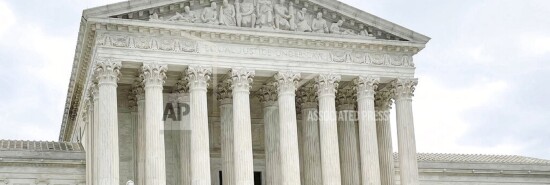
Supreme Court checks Biden’s overreach on student loans
Washington Examiner
In refusing to allow President Joe Biden to transfer massive student debt from borrowers to the public by executive fiat, the Supreme Court finished its term with a strong affirmation of legal propriety, linguistic accuracy, and the constitutional separation of powers. As a fortunate byproduct, the court served the cause of financial sanity as well.
If Biden had integrity, the court never would have needed to consider the case at all. From the moment the idea of mass loan forgiveness popped into his head, it was obvious even to him that he did not have the authority to grant it without congressional approval. “I don’t think I have the authority to do it by signing with a pen,” Biden said in the first month of his presidency. Five months later, House Speaker Nancy Pelosi (D-CA) agreed: “People think the president of the United States has the power for debt forgiveness. He does not. He can postpone. He can delay. But he does not have that power. That has to be an act of Congress.”
GOP SHIFT FROM FREE TRADE IS IRREVERSIBLE, ACCORDING TO TRUMP’S TOP TRADE REPRESENTATIVE
Then, in a crass bid for mid-term election votes, Biden pretended to forgive the loans anyway. To do so, he tortured the law and the language beyond recognition.
Education Secretary Miguel Cardona, acting at Biden’s behest, claimed to be forgiving the loans under a statutory provision allowing them to modify the program due to a “national emergency.” The “emergency” the administration cited in 2022 was the COVID-19 pandemic, which by then was already over and thus, arguably, no longer applicable. Rather than merely modify the program, Biden gutted it, turning it from a loan guarantee into a free gift from Uncle Joe.
This is not how law is supposed to work, and not how language is supposed to be read or (mis)used. As Chief Justice John Roberts wrote for a 6-3 majority (which ought to have been unanimous), the word “’modify’ carries ‘a connotation of increment or limitation,’ and must be read to mean ‘to change moderately or in minor fashion.’” In that light, “The secretary’s power under the Act to ‘modify’ does not permit ‘basic and fundamental changes in the scheme’ designed by Congress.”
Roberts wrote: “What the secretary has actually done is draft a new section of the Education Act from scratch by ‘waiving’ provisions root and branch and then filling the empty space with radically new text.”
When ordinary language and ordinary reading of the law do not provide such leeway, but a president tries to claim it anyway, he acts not as an executive but as a one-man legislature. The Constitution separates powers to prevent such concentration of power in one man’s hands.
Even if the debt cancellation were a good idea, which it isn’t, “the question here is not whether something should be done; it is who has the authority to do it,” Roberts wrote.
Before Biden decided to ignore that question, both he and his ally Pelosi acknowledged the answer: Only “an act of Congress” can fundamentally change a program created by an earlier act of Congress. This six-justice majority was right to uphold the Constitution’s separation of powers, and thus the cause of ordered liberty, by rejecting Biden’s abrogation of valid contracts.
CLICK HERE TO READ MORE FROM THE WASHINGTON EXAMINER
While it was not in the court’s purview to consider the practical, financial effects of its decision, the results will also bolster the country and the nation’s finances. A massive forgiveness of college loan obligations was expected to add $430 billion to record federal debt. The burden would have fallen on families of taxpayers who did not get a college education, to the benefit of people whose loans financed their economically rewarding college degrees. What amounts to a massive federal subsidy would only have encouraged colleges to raise tuition costs with the knowledge that the government would backstop tuition inflation.
Protecting both the Constitution and sound economic reason is a good way for the Supreme Court to end its session.
